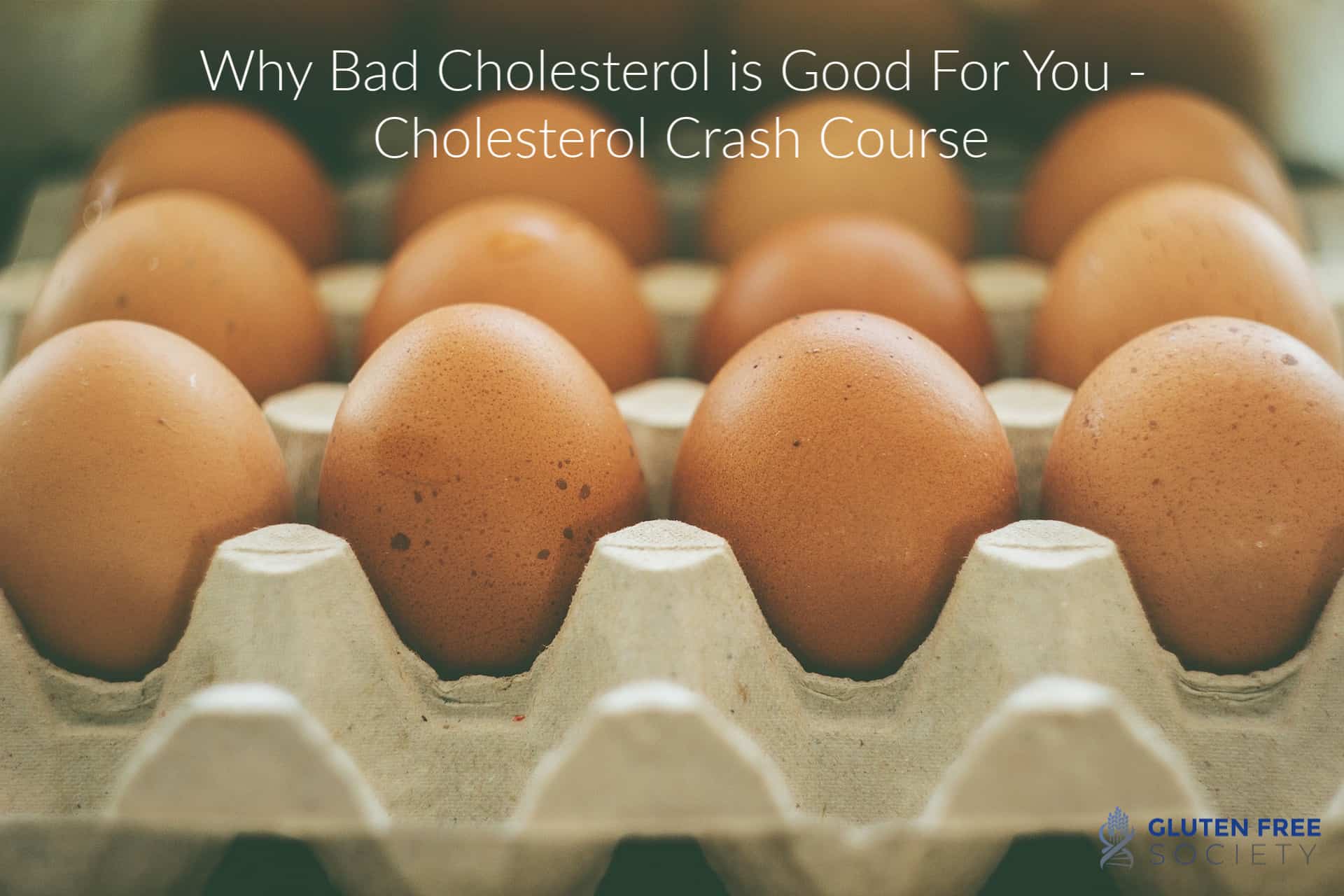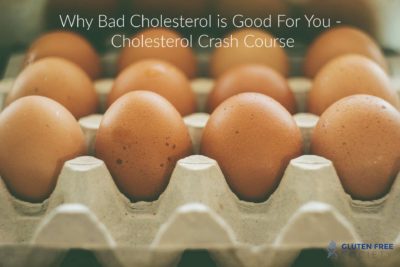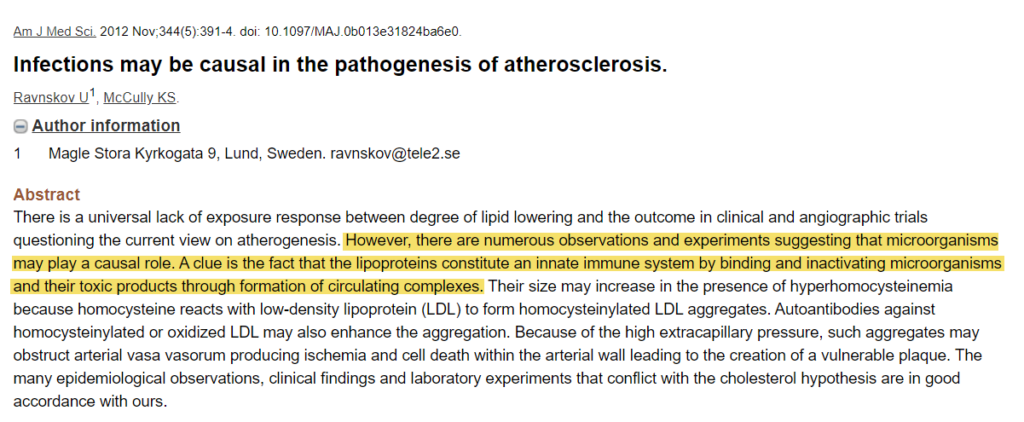new to the gluten free journey?
new to the gluten free journey?

 Not so long ago, many doctors and researchers began waging a war on the fat found in food, highlighting the many negative effects that it could have on the body. One of these negative effects was raising cholesterol leading to heart disease, stroke, atherogenesis, and ultimately an early death.
However, as more and more people started to take statins, or medication to lower their cholesterol, and jumped to get rid of fat in their diet, cases of cardiovascular disease actually started to rise. Ultimately, this begs the question, “Is ‘bad’ cholesterol really that bad?”
Not so long ago, many doctors and researchers began waging a war on the fat found in food, highlighting the many negative effects that it could have on the body. One of these negative effects was raising cholesterol leading to heart disease, stroke, atherogenesis, and ultimately an early death.
However, as more and more people started to take statins, or medication to lower their cholesterol, and jumped to get rid of fat in their diet, cases of cardiovascular disease actually started to rise. Ultimately, this begs the question, “Is ‘bad’ cholesterol really that bad?”
Contents
Toggle While there are a few different types of cholesterol found in the body, the one that often gets the bad rap is referred to as LDL or Low-Density Lipoprotein. As its name suggests, this form of cholesterol is made up of both fat (lipo) and protein. Many doctors tout that large amounts of LDL can increase the risk of heart disease, stroke, and atherogenesis, or the development of atherogenic or atherosclerotic plaque in the blood vessels.
It is believed that over time, this plaque will continue to build and may eventually break off, allowing it the ability to getting lodged in a spot that will reduce blood flow to the heart, brain, or lungs, leading to a heart attack, stroke, or pulmonary infarction. Because of this fear, many doctors suggest lowering LDL levels and are quick to prescribe a change in diet, as well as, a statin medication. However, not only can statins lead to a deficiency in several key nutrients, but, for many, employing a low-fat diet usually means turning to processed foods loaded with carbohydrates and sugar.
While there are a few different types of cholesterol found in the body, the one that often gets the bad rap is referred to as LDL or Low-Density Lipoprotein. As its name suggests, this form of cholesterol is made up of both fat (lipo) and protein. Many doctors tout that large amounts of LDL can increase the risk of heart disease, stroke, and atherogenesis, or the development of atherogenic or atherosclerotic plaque in the blood vessels.
It is believed that over time, this plaque will continue to build and may eventually break off, allowing it the ability to getting lodged in a spot that will reduce blood flow to the heart, brain, or lungs, leading to a heart attack, stroke, or pulmonary infarction. Because of this fear, many doctors suggest lowering LDL levels and are quick to prescribe a change in diet, as well as, a statin medication. However, not only can statins lead to a deficiency in several key nutrients, but, for many, employing a low-fat diet usually means turning to processed foods loaded with carbohydrates and sugar.
 What most don’t realize, however, is that only 25% of low-density lipoprotein cholesterol actually comes from diet. The other 75% is made “in-house” by the liver and apart from the harm that doctors and patients see, it has several important functions within the body.
One of the vital functions of LDL is its role in forming the membranes of every cell. It allows the membrane to be permeable which permits the flow of nutrients in the cell and waste out of the cell. Without it, the cell membrane could not receive proper nutrients and waste would be trapped, hindering its ability to function.
What most don’t realize, however, is that only 25% of low-density lipoprotein cholesterol actually comes from diet. The other 75% is made “in-house” by the liver and apart from the harm that doctors and patients see, it has several important functions within the body.
One of the vital functions of LDL is its role in forming the membranes of every cell. It allows the membrane to be permeable which permits the flow of nutrients in the cell and waste out of the cell. Without it, the cell membrane could not receive proper nutrients and waste would be trapped, hindering its ability to function.
 As mentioned, when LDL numbers reach a certain point, many doctors will start to prescribe medication referred to as a statin. Depending on when they are tested, some men and women will be on this medication for years which can have significant repercussions on the body. These include:
As mentioned, when LDL numbers reach a certain point, many doctors will start to prescribe medication referred to as a statin. Depending on when they are tested, some men and women will be on this medication for years which can have significant repercussions on the body. These include:
Stay up-to-date with the latest articles, tips, recipes and more.

*These statements have not been evaluated by the Food and Drug Administration. This product is not intended to diagnose, treat, cure or prevent any disease.
If you are pregnant, nursing, taking medication, or have a medical condition, consult your physician before using this product.
The entire contents of this website are based upon the opinions of Peter Osborne, unless otherwise noted. Individual articles are based upon the opinions of the respective author, who retains copyright as marked. The information on this website is not intended to replace a one-on-one relationship with a qualified health care professional and is not intended as medical advice. It is intended as a sharing of knowledge and information from the research and experience of Peter Osborne and his community. Peter Osborne encourages you to make your own health care decisions based upon your research and in partnership with a qualified health care professional.
One Response
Love the helpful sensible health info. Have told several friends about your website so they can use it as a resource.
My question is – what cholesterol range is a “ideal” and of course LDL HDL triglycerides and VLDL. My VLVL is extremely high although t ear 90 percent clean meals. Believe I’ve inherited Heart disease and know have calcification in main artery along the spine that showed up in chiropractic X-ray. And have hard bumps under skin on face, shins and other areas. Taking herbs causes systemic dehydration so feel I’m dependent on diet as main avenue that’ll work for me.
At age 60 My biggest room for improvement is exercise.
Sorry this got so wordy. Appreciate any imput. Debbie B.